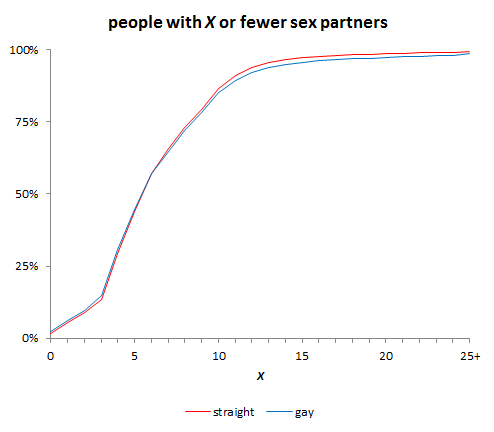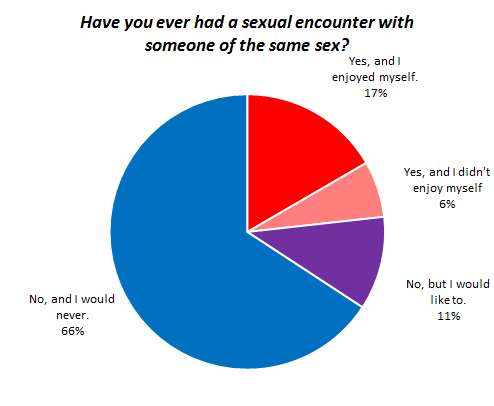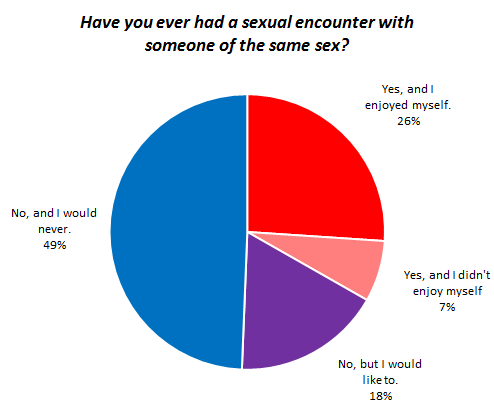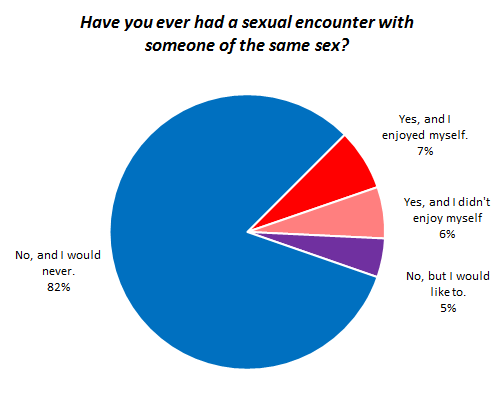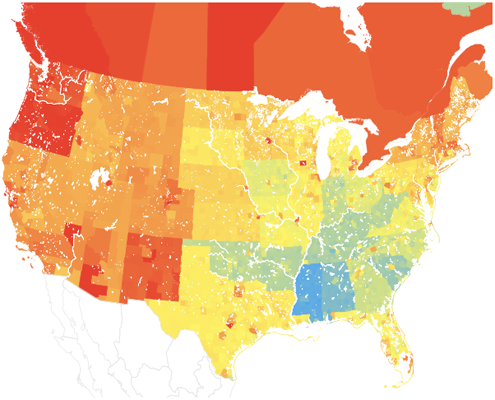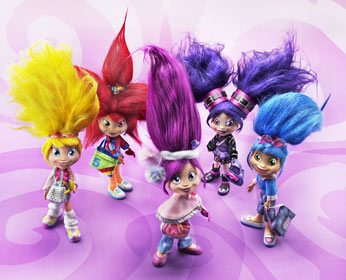Kristie, Dmitriy T.M., and Tiffany L. sent in this post at OkCupid comparing 3.2 million profiles of straight people to those of gays and lesbians. Undermining the persistent stereotype that gays are more sexually promiscuous than straight individuals, OkCupid users, gay and straight, reported the same median number of sex partners (6), and the overall pattern is nearly identical regardless of sexual orientation:
And sexual encounters with someone of the same sex aren’t limited to people who identify as gay. Here are the results from a survey of 252,900 users who identify themselves as straight; about a third have either had at least one same-sex sexual encounter, or would like to:
Straight-identified women were significantly more likely to report a same-sex experience (and that it was pleasurable) or interest than were straight men. Here’s the pie chart for women:
And this is for men:
My guess is a lot of people will attribute that to women “playing” at being bisexual or going through a “stage,” but it seems likely to me that part of what is going on is that men’s gender performance is policed so much more harshly and constantly that men suffer greater consequences for same-sex encounters and have more reason to avoid them and to avoid even thinking of them as a possibility.
Reports of same-sex encounters or interest varied significantly by region. In the map, orange = higher rates, blue = lower (OkCupid doesn’t give any percents to go with the different colors, sorry):
There’s other data on personality profiles and, uh, the number of people who think the earth is larger than the sun (!) at the original post.
Also see our previous post on race, gender, and preferences on OkCupid.

